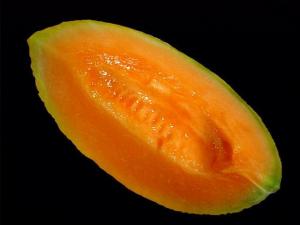At least 15 people have been infected with the outbreak strain of Listeria monocytogenes in Colorado, Nebraska, Oklahoma and Texas, in what officials are calling the first listeria outbreak linked to cantaloupe in the U.S.
State and local public health officials have interviewed most of the patients and discovered that the majority of them consumed whole cantaloupes, most likely marketed from the Rocky Ford  growing region of Colorado.
growing region of Colorado.
The U.S. Centers for Disease Control reports laboratory testing by the Colorado Department of Public Health and Environment identified Listeria monocytogenes bacteria on cantaloupe collected from grocery stores and from an ill person’s home. Product traceback information from Colorado State officials indicated these cantaloupes were harvested in the Rocky Ford region. FDA is working closely with CDC, the firms involved, and public health authorities in states where illnesses occurred to determine the exact source of contamination.
Kent Lusk, a fifth-generation cantaloupe farmer from Rocky Ford, told USA Today, "This is really silly. You can get Listeria any place. I eat those melons every day."
Colorado Agriculture Commissioner John Salazar said it might not be the cantaloupes, but a contaminated truck or other source. He said no recalls have been issued, but several Colorado grocery chains pulled their supplies as a precaution.
Rocky Ford cantaloupes are famous throughout the country, drawing travelers to roadside stands. Piles of the coveted melons are featured on postcards. W.C. Fields reportedly said bald guys have "a head shaped like a Rocky Ford cantaloupe," and Lucile Ball had the melons delivered to her dressing room.
Dr. Lawrence Goodridge, a food and biology professor at CSU, told The Pueblo Chieftain, "Listeria occurs naturally everywhere, but this is the first time we’ve ever seen an outbreak of foodborne illness in cantaloupe."
Guelph-grad Larry (left, pretty much as shown) probably meant to say an outbreak of listeria in  cantaloupe because there have been lots of outbreaks on cantaloupe (see the table at http://bites.ksu.edu/cantaloupe-related-outbreaks).
cantaloupe because there have been lots of outbreaks on cantaloupe (see the table at http://bites.ksu.edu/cantaloupe-related-outbreaks).
"My gut hunch is that when all this over, we’re going to find something has changed in the conditions because listeria is common in the soil but this time, it’s apparently migrated into melons."
